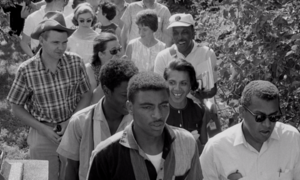article
The Civil Rights Act of 1964 — Title IV: Equal Education for All
A decade after Brown, Title IV again called for desegregation of public schools. Studying images of segregated schools close in time and place can help students build a picture of the wide discrepancies between educational facilities.

